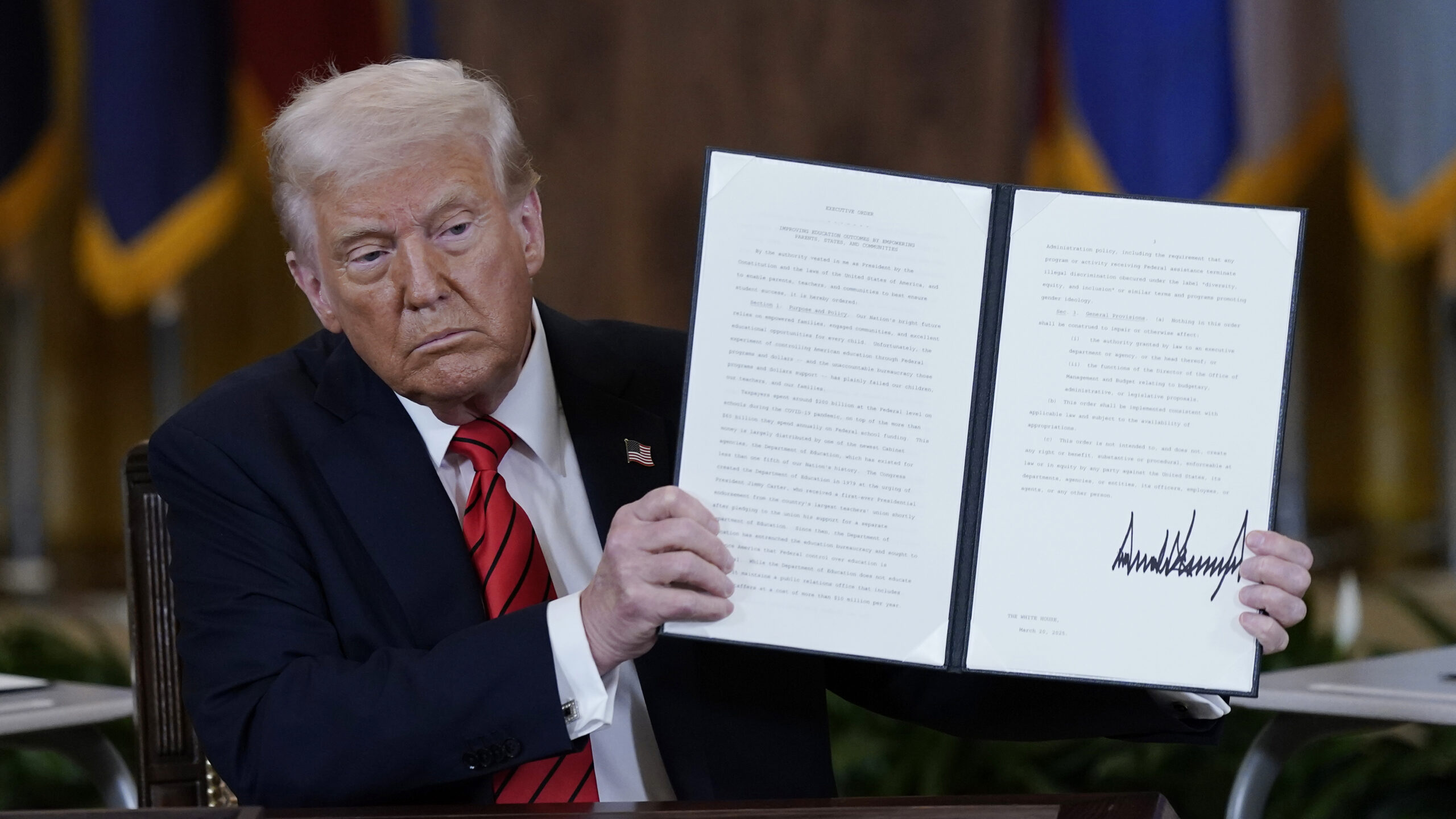Trump’s Impact on Financial Aid
President Donald Trump’s advances to downsize the Department of Education places families and students in an uncertain financial situation. Most recently, Trump’s administration announced the shifting of the federal student loans portfolio from the ED to the hands of the Small Business Administration.
These changes directly affect how higher education institutions, such as St. Lawrence University, handle finances, such as the Free Application for Federal Student Aid, loans and grants. Tommiann Russell, executive director of the financial aid office at SLU, expresses concern regarding the timelines for processing the FAFSA. “With the reduction in staff at the ED, one of the areas that may be impacted are the tech people and behind-the-scenes folks who are getting the FAFSA ready,” she said. “The problem for us is that we have to have that ready so our students can be filing to be admitted.”
An additional concern arose from Florence Hines, dean of admissions at SLU, regarding the pressures that processing delays within the ED may create. “High school counselors were encouraging kids to go near home and to go the least expensive school on their list because nobody knew what the aid was going to look like,” said Hines. “You should have admission, scholarship and aid package in your packet; we only had scholarship, but that’s only one piece that families are counting on us for.” She then confirmed that the only way to receive loans or federal funds such as the Pell Grant depends on FAFSA results, which could become a problem for next year’s admissions with recent developments.
President Trump and his administration’s decisions toward the ED place stress on more than just the administration at universities. Students and their families also face rising uncertainty, questioning how the policy changes may impact pricing, loans and grants. A current student at SLU, who will be named Ethan ’27, for privacy, disclosed his concerns about paying for his education. “My parents and I are worried this may disrupt some of the grants I’m getting,” he said. “I think it’s the Pell Grant; it’s what I’m relying on to help get me through school.”
To settle the confusion and concerns that recent alterations under the Trump administration have created, it is an important reminder that federal funding through programs like the Pell Grant isn’t going anywhere. “The Pell program will not be in jeopardy, and the funding will remain intact,” said Russell. “It’s more just the processing; I can’t award a Pell Grant without the behind-the-scenes stuff being sorted out.” Although the process may become a bit more tedious, this proves to be good news for all SLU students relying on federal funding to assist them with their education costs.
Recent changes to the ED will not result in a loss of aid or grants but will continue to stress both prospective students and the administration at SLU. “60 percent of the students at St. Lawrence University have need-based aid,” said Hines. If changes or a loss in the ED occurs, the delays in financial aid packages will continue to make admissions difficult.
This is why SLU and members of its administration, such as Russell, are aware of alternative plans to keep the system functioning. “We have the ability to say, ‘Okay well we have different options here,’” she said. Hines also notes the student-centered mindset at SLU and other small universities. “We can’t let a student fall through this kind of crack because it changed at the federal policy level,” Hines said. “We have to help the student figure out how to navigate in whatever situation, so that’s why having a Plan B is important.”
Although this plan was never formally described, SLU administrators such as Hines and Russell are confident in their ability to alter course if need be. “It’s a strategy change to ensure that families have their information on time,” said Hines.



